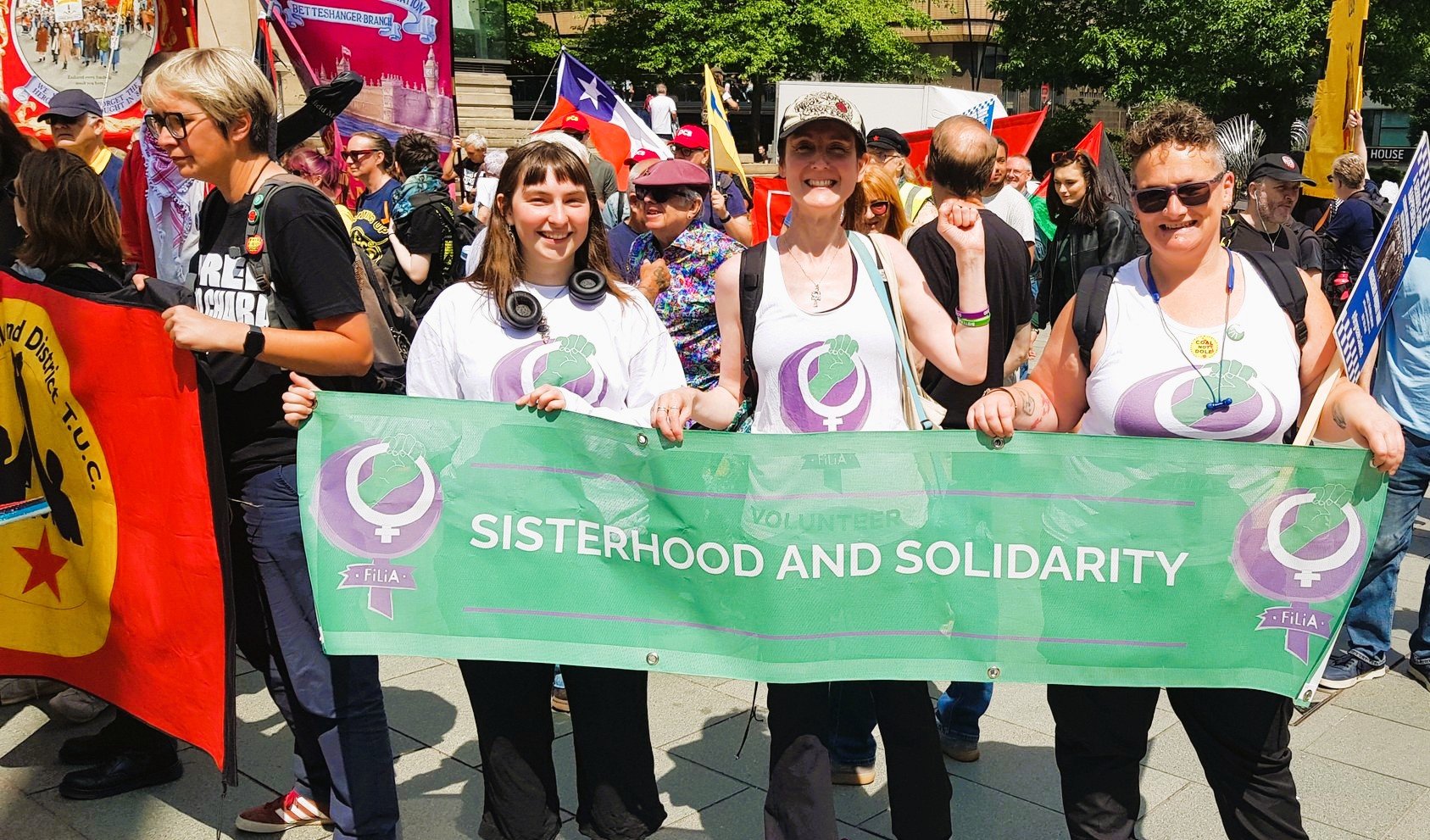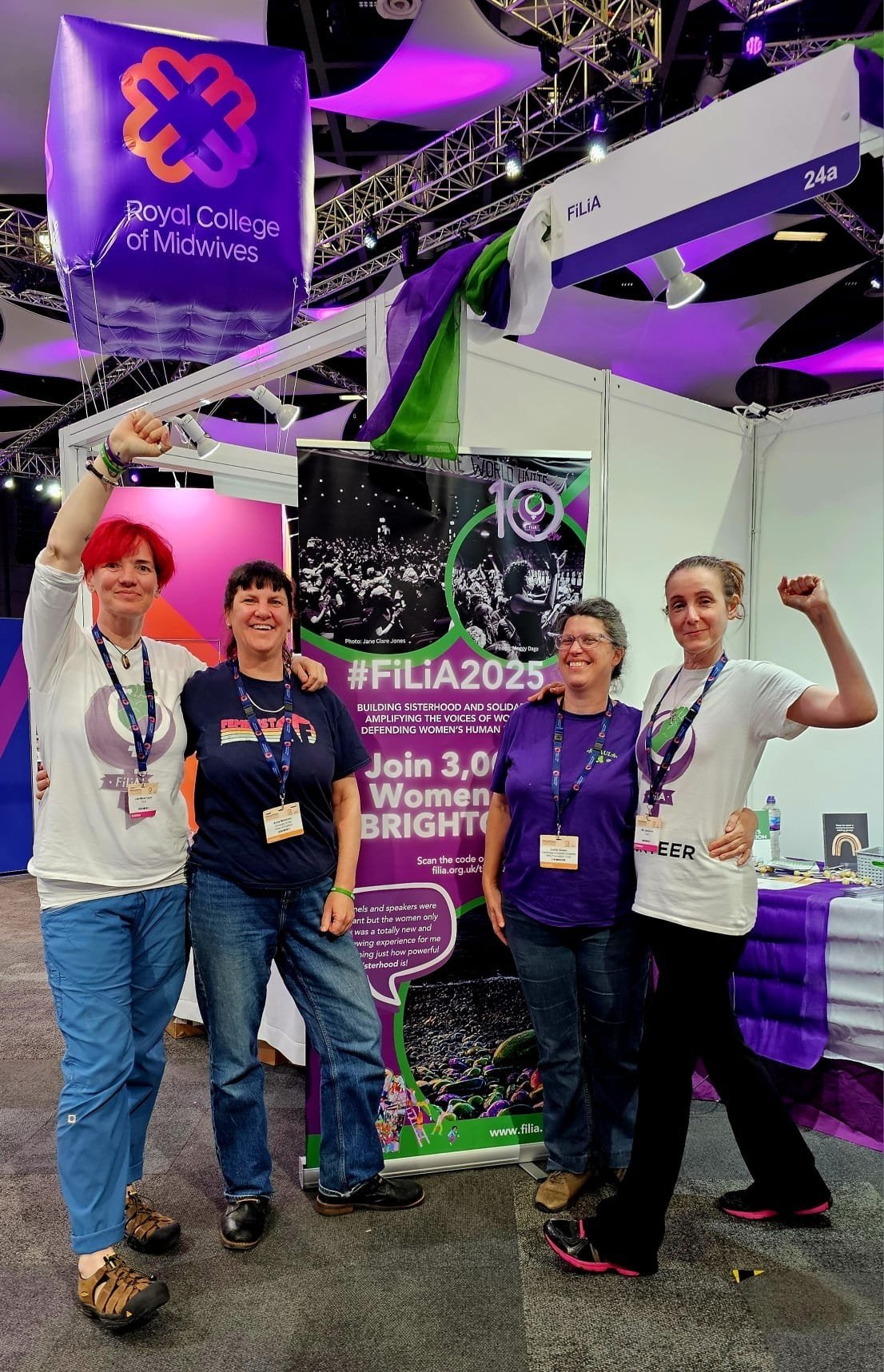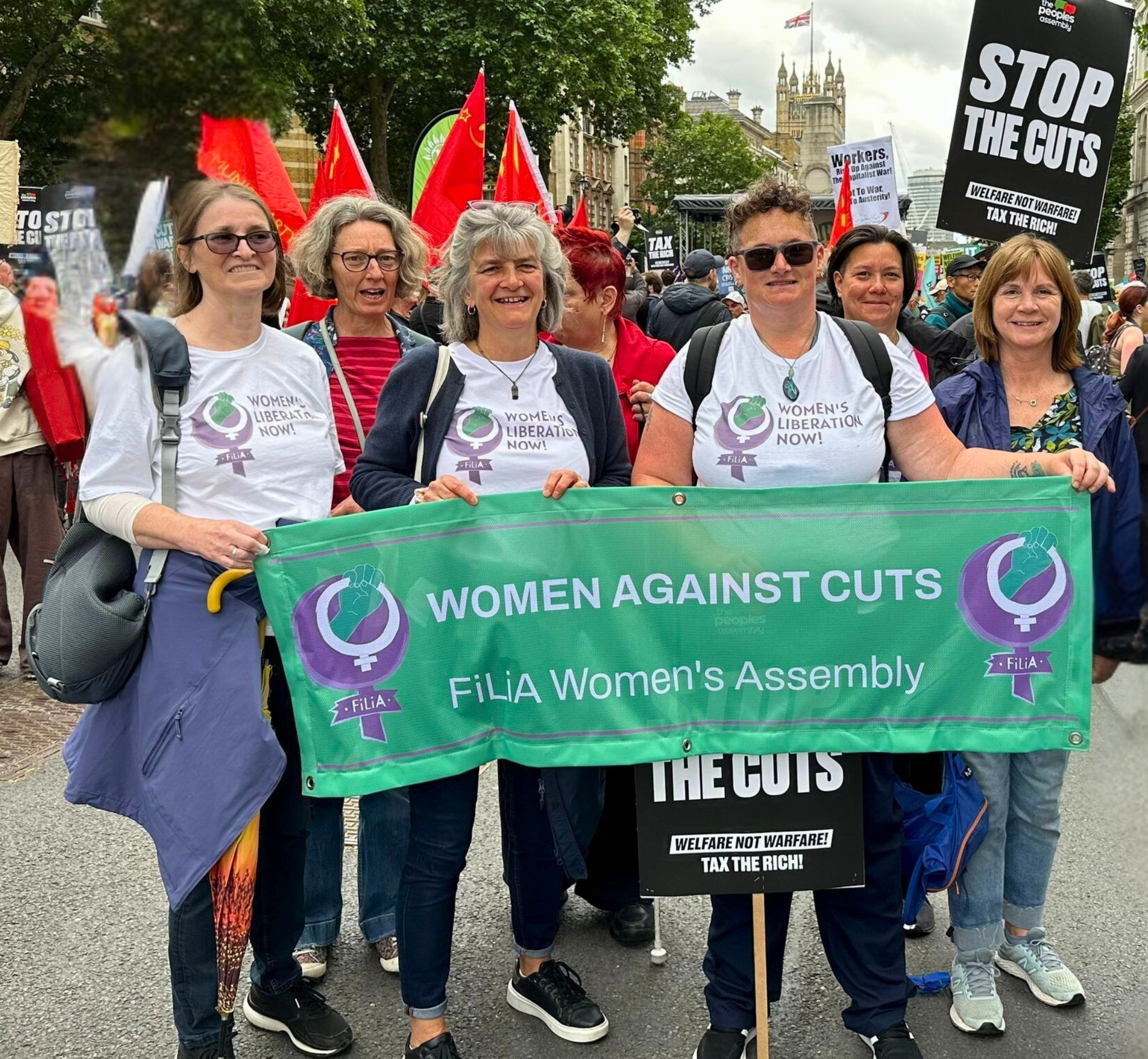FiLiA Trade Union Women’s Network: Putting Women at the Heart of the Labour Movement
Cover image: Photo of matchgirls participating in a strike against Bryant & May, London 1888 (author unknown). Source Wikimedia Commons.
Today is the anniversary of the 1888 Matchwomen’s Strike when around 1400 mainly young women went on strike at the Bryant & May match factory in Bow, East London. They were protesting the appalling conditions in which they worked and their treatment at the hands of management. This strike was led by working class women of Irish descent and showed their brothers and fathers, the dockers of the East End, that you could challenge exploitation and win. The 1888 Matchwomen’s Strike and the Dockers Strike of the following year are considered to be the start of the modern trade union movement.
Read the astonishing story of The Matchwomen’s Strike in Louise Raw’s groundbreaking book Striking a Light: The Bryant & May Matchwomen and their place in history.
At FiLiA, we are determined to follow in the footsteps of the Matchwomen and put women at the front and centre of the trade union movement.
So, today we are launching our official page on the FiLiA website alongside an updated sign-up form.
We are delighted with the response we have had to this initiative so far but we are looking forward to taking it to the next stage.



What have we done so far?
Since we launched earlier this year, we have been busy promoting the FiLiA Trade Union Women’s Network at labour movement events including:
Women’s Trade Union Congress (TUC) Conference
Royal College of Midwives and the NASUWT conferences
May Day Rally and March
People’s Assembly against the cuts
PCS Conference
Orgreave Anniversary march and rally
We will shortly be sending out our first newsletter. We will use this to keep you informed about the Network, as well as events and activities relating to trade unions and the campaigns you have told us you are interested in.
What will the Network do?
1. Build union networks
We will be contacting women in the Network to connect them with other women in the same unions. We already have connected some UCU members and would like to do this for all the unions for which we have Network members. We will support these union networks to build strength, confidence and knowledge to ensure women members are at the heart of union activity.
2. Support regional networks
We want to connect women from different unions in locations based in their Trades Union Congress/Irish Congress of Trade Union regions. We will be identifying locations in these areas to facilitate real life meet-ups for women to come together and identify issues and campaigns that they want to tackle. We will connect FiLiA TU Women with other women in the FiLiA Women’s Assembly, the wider FiLiA network and other relevant groups and campaigns.
3. Provide information and resources
We will work with members of the Network to source information and support to enable women to take up campaigns, remove barriers, challenge sexism and misogyny and increase their effective participation and agency in the trade union movement. We will promote the Network at labour and trade union events and seek to strengthen links between FiLiA and the labour movement.
4. Meetings on and off-line
We will help to facilitate face-to-face events around the UK in conjunction with the regional networks. We will be organising a workshop and networking session as well as a more informal event at the FiLiA Conference in Brighton. We will also organise online events on a range of topics and issues.
What next?
The Network already has nearly 200 members from around 20 unions and we are confident that this Network will grow in strength and power.
So, if you are interested in making unions work for women, please sign up here.
If you are already a member, send this blog to other women you know who might be interested in the network.
If you are interested in helping us host an in-person meet-up for TU women in your area, let us know at TUWomen@filia.org.uk.
We will also be at the Durham Miners’ Gala on 12th July. Come and find our stall!
Women were key to building the trade union movement. We will do it again.
